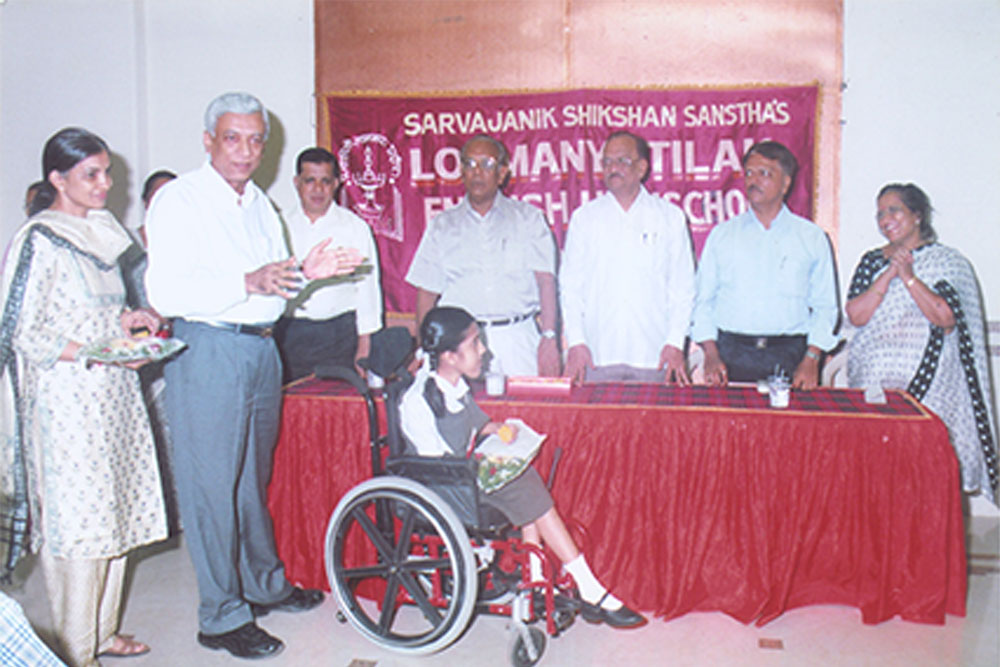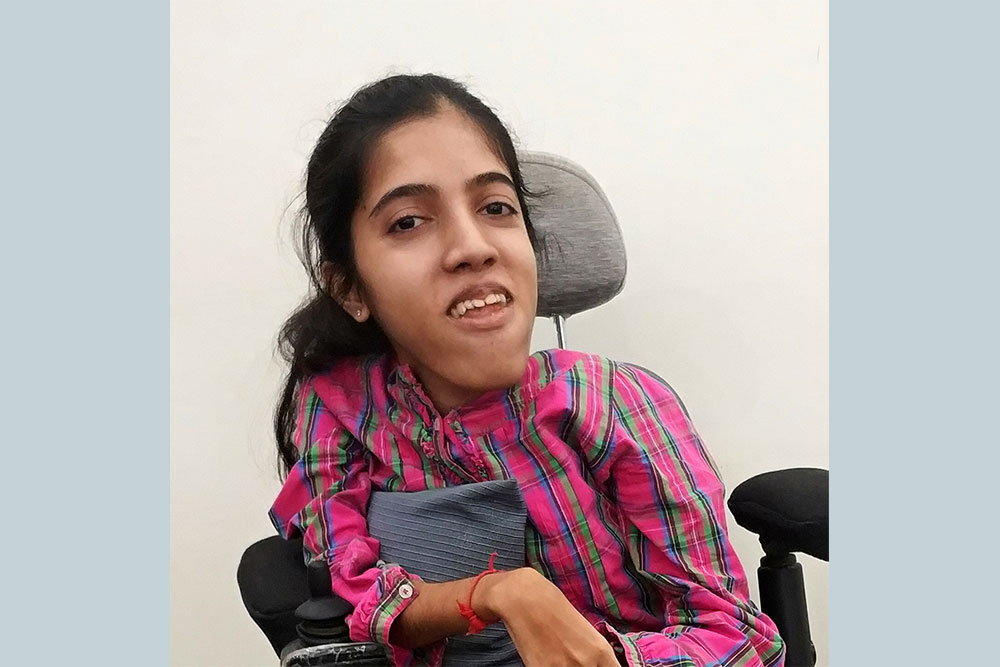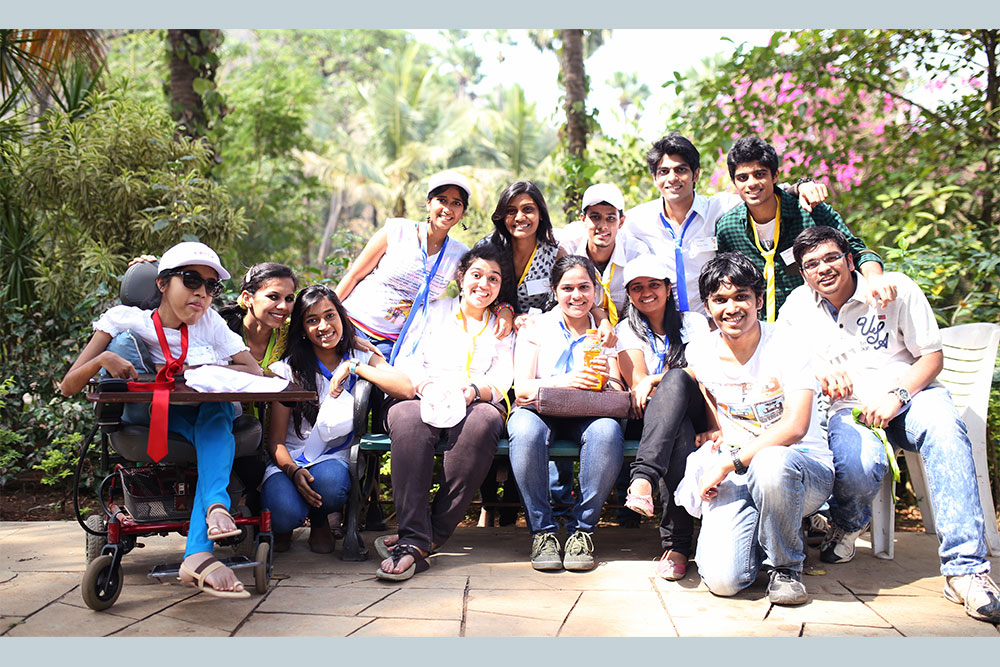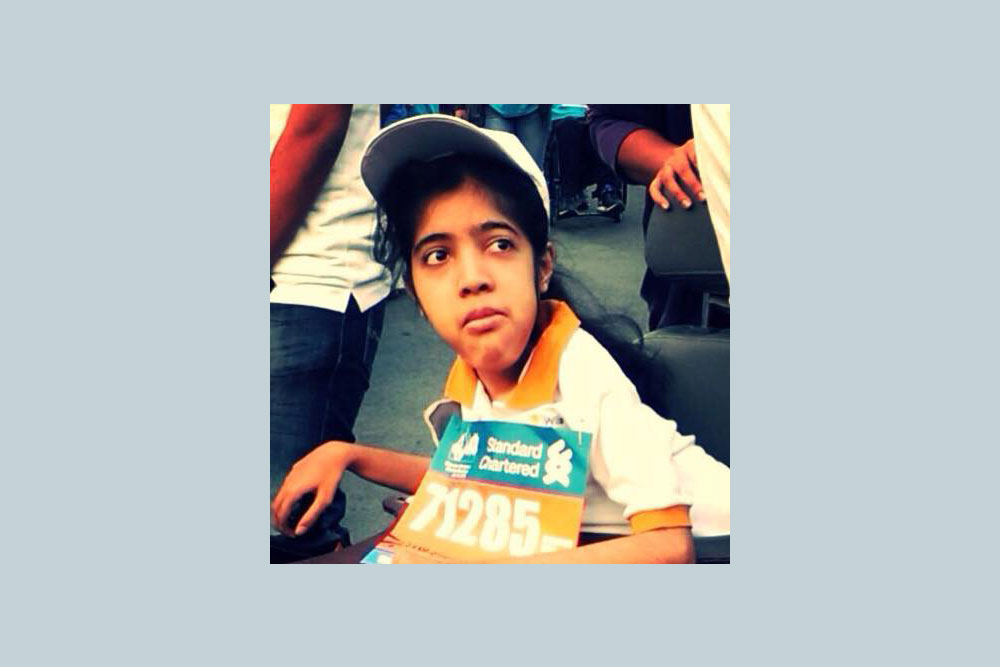“It’s ironic how one of the happiest days of my life turned out to be the most disappointing,” says 24-year-old Maitri Shah, as she recounts the first time she was made to feel “different”. “I scored 95 per cent in the 10th grade, post which, the authorities at my school, Lokmanya Tilak English High School, Mulund, Mumbai, had invited all the top performers to felicitate them. As was planned, the media had gathered to interview us, and somehow, I noticed that I was being given more attention than the others who had better grades. That’s when it hit me that the world sees me in a certain way. I didn’t know if I was being appreciated for scoring well, or scoring well despite my disability,” she elaborates.
Shah was diagnosed with congenital muscular dystrophy when she was six months old, and had to undergo regular physiotherapy sessions. However, so protected was her life that she never thought of herself as any less. “My parents would expect my brother and me to deliver on the same things. My friends would never fail to include me no matter what they were doing, and teachers always encouraged my interests. Thus, I have fond memories growing up. That’s not to say I was deluded, and didn’t know my condition enough, just the difference never hit me,” Shah informs.

Junior college forced Shah to step out of her cocoon to face the world devoid of her support system, and here’s when reality struck again. She failed to make new friends, and her teachers were more or less, indifferent. “No one came to speak to me, and the fact that I am an introvert never helped. I recall, on a certain day, as my mother dropped me to college, a professor came up to her to confirm whether or not I am mentally fit. I felt humiliated and appalled at the level of ignorance, that too on the part of a professor,” Shah fumes.
It was during junior college that Shah chalked out her plan for education. She wanted to pursue engineering; when she initially broached the subject, it was met with much resistance. Why? Long hours of travel, and lack of facilities in the college premises. “My father went around various colleges in Mumbai to understand whether or not I would be able to study there, but most weren’t wheelchair friendly. KJ Somaiya College of Engineering, Mumbai, was one with an elevator, and our pick for the course,” says Shah, who graduated from the institute with a degree in computer science engineering in 2016.

The hassle of procuring admission, despite a great academic record, prompted the 24-year-old to kick-start an NGO called WillsOnWheels to spread awareness surrounding various forms of disabilities. As part of the initiative (comprising Shah, her older brother, and two other members), the team would print a monthly newsletter and organise events.
However, as time went by, Shah concluded that she needed to do more to make a difference at the ground level, and thus in 2017, Mind Assets was born. “I didn’t want others to go through the challenges I did. Post my degree, the only reason a company didn’t make an offer to me was because they didn’t have provisions for the physically disabled. Mind Assets aims to provide work from home job opportunities to people with disabilities,” says the entrepreneur, adding that 74 per cent of persons with physical disabilities, and 94 per cent of persons with intellectual disabilities are unemployed (as per International Disability Rights Monitor, ‘Regional Report of Asia’, 2005).

Ever since its inception, Mind Assets has successfully provided employment to 26 people with disabilities. “Before the pandemic hit in 2020, work from home opportunities were rare. Hence, it was not only an uphill task to find jobs, but also to convince companies to hire a person with disability,” she says.
As she looks at the future with hope considering work from home is now the norm, she emphasises on the need to encourage the differently-abled to realise their potential. “Many a times, people tend to appreciate average work just because it has been executed by a disabled person. That’s not how anyone evolves, and that’s certainly not inspirational. It’s high time we treat them as capable and keep sympathy aside,” Shah tells Her Circle.

Having said that, Shah confesses that ignorance doesn’t infuriate her anymore. “There is no time for these things. If I had to spend time focusing on what people think/say, I wouldn’t be able to pursue my passions. Over time, I have learnt that the best remedy is to let your work speak for itself. We have one life,” she concludes.